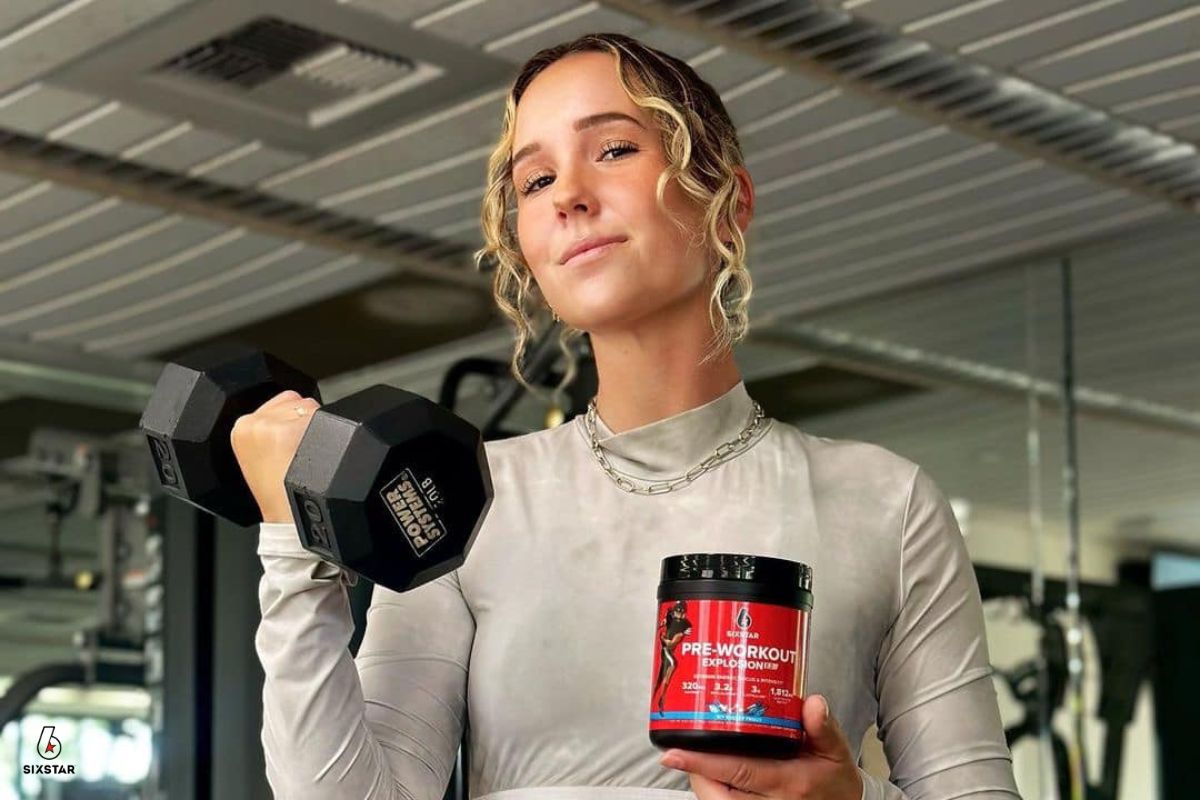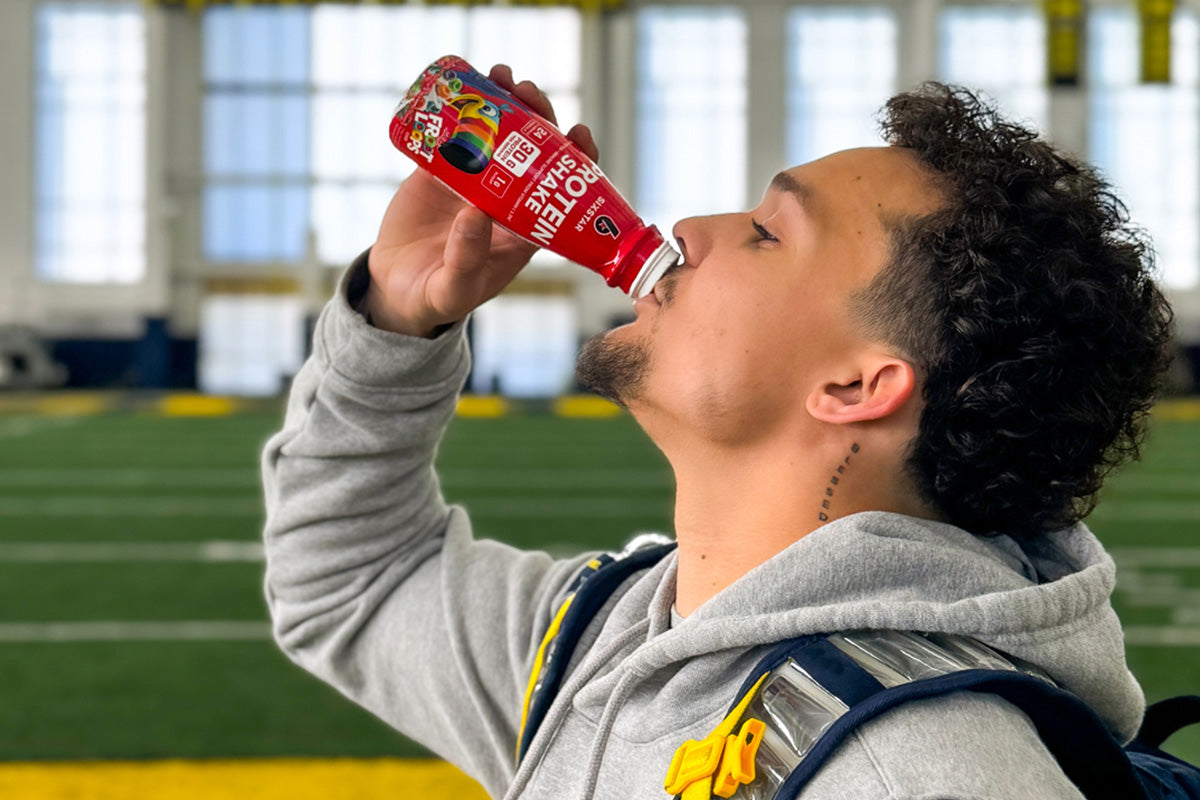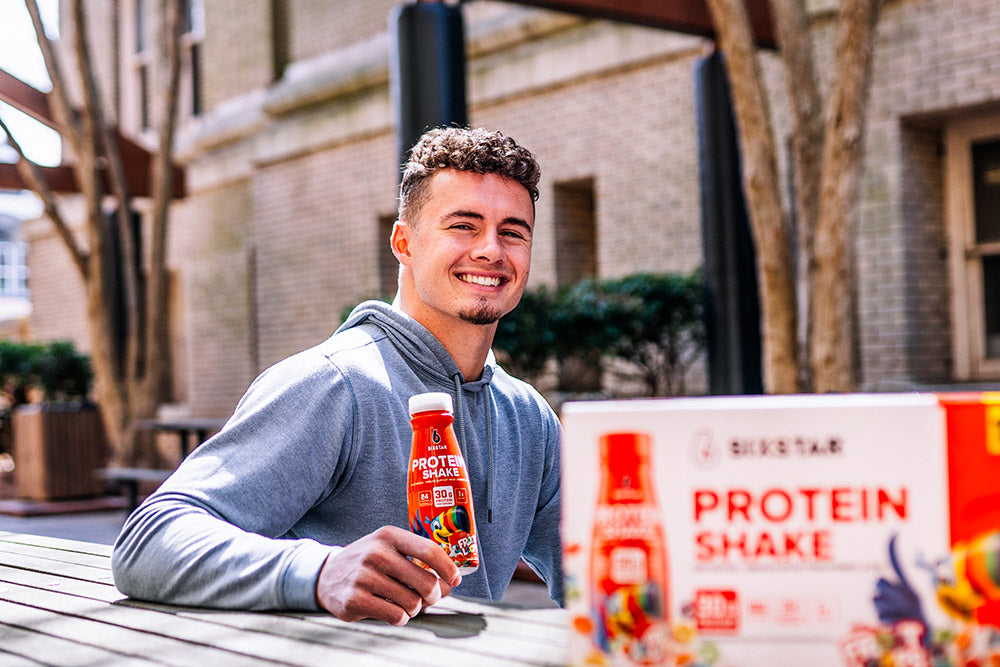Does Pre-Workout Help You Lose Weight? Or Can They?
While pre-workouts are great for increasing strength, energy, and power during a workout, could they play a part in your overall weight-loss program as well??
We all know that the health and fitness world is filled with misconceptions and confusing myths. Myths like as long as you exercise, you can eat as much junk food as you want, or if you don't feel sore right away after an exercise, it wasn't a good one or sweating is a sure sign that you're losing weight.
Similarly, people tend to assume that certain types of health and wellness supplements are only useful for achieving specific fitness goals.
Pre-workout supplements are a great example. People think pre-workouts are only important to getting you ready for a workout and are specific with hard-core athletes and bodybuilders who are hyper-focused on growing muscle mass.
But did you know that pre-workouts can also help you in your weight-loss journey? I am sure you like the sound of that, let’s get into the details to find out.
Table of content
What’s Often in Pre-Workout? Key Ingredients
Before we explore the specific ways that pre-workout can help you get fit and reach your goal of losing weight, let’s touch on what’s in a typical pre-workout. What ingredients make a pre-work out effective for you?
The following are some of the most common ingredients you’ll find in high-quality pre workout products:
Caffeine
Caffeine is a stimulant that’s found in most pre workout supplements. It increases your energy by binding to the adenosine receptors.
Adenosine regulates the sleep-wake cycle. When levels of this neurotransmitter increase, you feel sleepier. Caffeine prevents this from happening and helps you to stay alert and energized while you train.
If you are looking for that boost in energy levels and focus during your work out sessions, caffeine is your go to supplement. Pre-workout generally contains a lot of caffeine, more than a cup of coffee. It is best to start with a small amount and stay within guidelines to get the most out of your workouts.(1)
Beta-Alanine
Beta-Alanine is an amino acid that’s produced in the liver. If you’ve ever tried a pre workout supplement that caused a tingly feeling, it likely had Beta-Alanine in it.
In addition to producing a tingling sensation, Beta-Alanine can also work with caffeine to help you to avoid fatigue while exercising, therefore enhancing your endurance, and improving athletic performance.
Beta alanine helps both in short duration (strength training) and longer duration (cardio based) activities. Generally, beta alanine has been shown to be safe in recommended amounts, it can have side effects. It is important to consider its effects on your body type.(1)
Creatine
Creatine is an organic compound produced by the liver, pancreas, and kidneys. Some pre-workout products contain creatine to supply energy to muscles during strength training or high intensity workout.
Our body uses creatine to make energy, being able to take your workout one step further has the potential to improve your performance in the gym. Creatine not only builds muscle .(1)
Betaine
Betaine is an amino acid that not only supports protein synthesis and protects cells during periods of dehydration, but also increases your resistance training performance.
Betaine supplementation is known due to its effects on muscle building, enhanced cellular hydration and increasing endurance. Apart from the above-mentioned benefits .(2)
L-Citrulline
L-Citrulline supports nitric oxide production in the body. Nitric oxide encourages the arteries to relax, which allows for better blood flow, as well as nutrient and oxygen delivery to the muscles.
This is why athletes take L-citrulline to help build muscles and boost their performance. More oxygen in your muscles means they can potentially work harder and more efficiently, and more oxygen transport means the lungs can work more efficiently.(3)
BCAA
Leucine, isoleucine, and valine are known as branched-chain amino acids. They get this name because their chemical structure resembles branches of a tree. These are 3 out of 9 essential amino acids that our body cannot make on its own.
These three BCAA’s make up a good deal of your muscle tissue and provide fuel source during exercise to support endurance. The reason being is that they respond to the stress of a hard workout and will help with energy production.(4)
Do pre-workouts have a place in your weight-loss program?
Pre-workouts can help you get that kick you need to crush your workout session, but do they belong in your weight-loss program?? The short answer is-Yes, but not by just ingestion but through several different mechanisms. The primary means by which you lose weight is by maintaining a caloric deficit diet. Without doing that, pre-workout will do nothing in terms of weight loss.
If you stay on a caloric deficit diet, pre-workout can help you reach weight loss goals in the following ways:
Increases energy
We have all been there experiencing “one of those days” when you feel a bit sluggish and lethargic. While you love working out and hitting weights, your energy isn’t always there some days.
If you give in to lethargy and skip your session, not only are you sacrificing stimulus for muscle growth/maintenance, but you’re also losing the chance to burn calories. However, if you take that favorite pre-workout, you will get that energy to crush the gym, lift some weight, and burn some calories.
Also Read: How long does preworkout take to kick in?
Allows a greater workload and caloric burn
One of the main goals of the pre-workout is to increase the overall workload you perform at the gym. Pre-workout help mitigate fatigue by utilizing the stimulants and buffering agents.
When the ingredients reach their peak, you can lift more weight at the gym that means you need more energy to complete your weightlifting. Which finally means more calories used.
If your pre-workout allows you to increase your workload and burn more calories, it can help you with your weight-loss goals.
May lead to better food choices
A recent study has shown the positive correlation between exercising and healthy eating. Researchers believe this occurs due to exercise having a positive impact on the brain’s executive function; or ability to make rational choices.(7)
Where does pre-workout come into play? Researchers spotted a positive relationship between intensity and food choices; in other words, the participants who participated in more intense exercise saw greater improvements in their food choices. Hence, pre-workout can be help you train harder and in turn help you make better food choices.
May improve body composition
This may not be the direct effect, but as an added advantage. Indirectly you gain muscle mass even if there is no effect on the fat content, your body composition would still improve, leaving you looking leaner.
This is possible as a pre-workout allows can allow for extra workload, which can translate into muscle growth. At the same time, you could look at your weight loss in the long term over months.
Pre-workout can aid in leaving you with an overall better physique and lower body fat percent than when you first started.
Read Now: How Long Does Pre-Workout Last?
Replacement for Sugary Drinks
This may not be the most scientific reason why pre-workout supplements may help with weight loss; it is still something to consider.
The good thing about pre-workouts is that they come in wide variety of flavors, you can always choose the one that you like the most. Doing this is an effective substitute for sugary drinks like soda or juice. One single glass of soda often has well over 100 calories and several tablespoons of sugar, pre-workout supplements, on the other hand, are often very low calorie and completely sugar free. As mentioned above, not as scientific but a worthy alternative to sugary drinks.
What is the right way to use Pre- Workout?
Clearly, pre- workout is a very effective tool in your workout arsenal. To unlock these benefits, it is essential to ensure proper usage of your pre-workout supplement.
Below are some tips to optimize your outcomes:
Also Read: How Does Pre-Workout Work?
1. Right Timing
To achieve peak energy levels after a pre-workout intake, timing is very important. Caffeine typically reaches its maximum effectiveness within 15-45 minutes of intake, aligning with the recommendation on most pre-workout supplements to take it around 30 minutes before your training session.
Timing it properly ensures that you feel an increase in energy levels and the kick during your workout session.
2. Right Amount
Ensure that you are consuming the appropriate quantity of pre-workout by always reading the label before use.
TL; DR
There is no denying that pre-workout supplements can be a powerful part of your weight-loss programwhen used correctly. By boosting your energy and enhancing workout performance, these supplements help you achieve your goals of weight loss efficiently.
Of course, it is essential to remember that not all pre-workout supplements are created equal. We recommend the SIXSTAR PRE-WORKOUT increase energy, build muscle, and experience explosive muscle pumps.
References:
- Spradley BD, Crowley KR, Tai CY, Kendall KL, Fukuda DH, Esposito EN, Moon SE, Moon JR. Ingesting a pre-workout supplement containing caffeine, B-vitamins, amino acids, creatine, and beta-alanine before exercise delays fatigue while improving reaction time and muscular endurance. Nutr Metab (Lond). 2012 Mar 30;9:28. doi: 10.1186/1743-7075-9-28. PMID: 22463603; PMCID: PMC3361498.
- Cholewa JM, Wyszczelska-Rokiel M, Glowacki R, Jakubowski H, Matthews T, Wood R, Craig SA, Paolone V. Effects of betaine on body composition, performance, and homocysteine thiolactone. J Int Soc Sports Nutr. 2013 Aug 22;10(1):39. doi: 10.1186/1550-2783-10-39. PMID: 23967897; PMCID: PMC3844502.
- Pérez-Guisado J, Jakeman PM. Citrulline malate enhances athletic anaerobic performance and relieves muscle soreness. J Strength Cond Res. 2010 May;24(5):1215-22. doi: 10.1519/JSC.0b013e3181cb28e0. PMID: 20386132.
- Blomstrand E, Eliasson J, Karlsson HK, Köhnke R. Branched-chain amino acids activate key enzymes in protein synthesis after physical exercise. J Nutr. 2006 Jan;136(1 Suppl):269S-73S. doi: 10.1093/jn/136.1.269S. PMID: 16365096.
- Koot P, Deurenberg P. Comparison of changes in energy expenditure and body temperatures after caffeine consumption. Ann Nutr Metab. 1995;39(3):135-42. doi: 10.1159/000177854. PMID: 7486839.
- Laeger T, Reed SD, Henagan TM, Fernandez DH, Taghavi M, Addington A, Münzberg H, Martin RJ, Hutson SM, Morrison CD. Leucine acts in the brain to suppress food intake but does not function as a physiological signal of low dietary protein. Am J Physiol Regul Integr Comp Physiol. 2014 Aug 1;307(3):R310-20. doi: 10.1152/ajpregu.00116.2014. Epub 2014 Jun 4. PMID: 24898843; PMCID: PMC4121631.
- Joo J, Williamson SA, Vazquez AI, Fernandez JR, Bray MS. The influence of 15-week exercise training on dietary patterns among young adults. Int J Obes (Lond). 2019 Sep;43(9):1681-1690. doi: 10.1038/s41366-018-0299-3. Epub 2019 Jan 18. PMID: 30659257; PMCID: PMC6639161.


